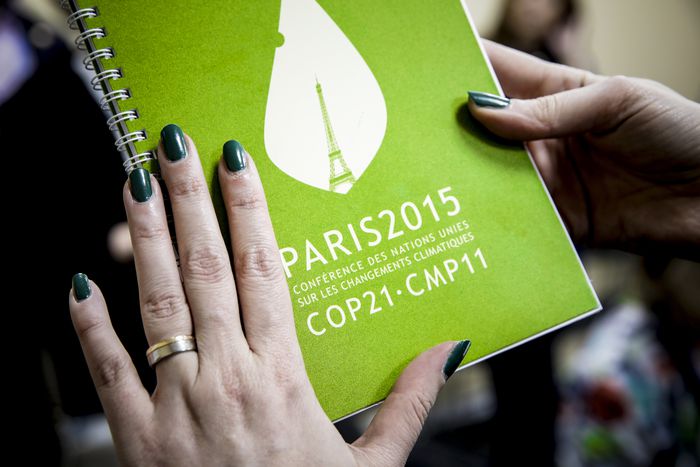
The EU is at a crossroads on climate change
Published on
The European Union, once the undisputed champion of the climate, today lags behind the United States and China when it comes to putting the Paris agreement into practice. National pressures hinder the whole ratification process, and the EU risks being left behind altogether. [OPINION]
Earlier this month, on the eve of the last G20 summit in Hangzhou, the United States and China, the two world’s biggest polluters, announced they would formally ratify last year's Paris agreement. Many experts considered the commitment of the world’s two largest economies as a turning point in the global fight against climate change. Brazil decided to join them on 12 September.
So far 28 countries, accounting for roughly 40% of global greenhouse gas emissions, have ratified the COP21 deal. It will become binding only when at least 55 countries, accounting for 55 % of the total emissions, will have ratified it, as pointed out in Article 21. However, another 20 countries, including Mexico and India, have recently expressed their intention to take part in the process by the end of the month.
Most probably, the agreement will be fully ratified by the end of 2016 without the participation of the European Union, which is still falling behind. European countries, responsible for 12% of global emissions, are currently grappling with the effort-sharing deal for sectors not covered by the EU Emissions Trading System (ETS). This will delay the EU's ratification until late 2017.
A lost climate diplomacy
“Many Europeans thought, where is Europe? Why are we not ready for this? Because our decision making process is slower,” said Connie Hedegaard, former European Commissioner for Climate Action at 2016 Bruegel Annual meetings, commenting on the announcement by China and the United States. “Climate should be one of the policy areas on which we rebuild the trust of the European citizens," she added.
At a time when Brexit and the refugee crisis have further discredited the image of the Union, member states look on the Paris agreement as one of the most tangible and important results achieved in the last years. However, the EU has visibly lost its global leadership on fighting climate change because of the slowness of the ratification process. Member states are expected to ratify the agreement at both European and national levels. While the Environment Council will endorse the Commission proposal on the deal in October, the ratification process at the national level will certainly take more time.
The EU could actually bypass national votes and claim self-competence on the matter, but this would ultimately cause a political backlash with certain member states. In the meantime Jean-Claude Juncker, President of the European Commission, urged European countries to ratify the agreement as swiftly as possible during his State of the Union speech earlier this month.
What is going on at the national level?
France, Hungary and Austria were the only member states already ratifying the agreement in their home parliaments. Others have also kicked off the process. However, many member states waited for the Commission's proposal on the so-called Effort Sharing Decision to start the procedure. The proposal, published last July, defines separate national emissions targets for different member states to contribute to the EU's overall emissions reduction target of 40% by the year 2030.
Nevertheless, some countries are still reluctant to approve it and their policies go in the opposite direction of the regulation. Poland, for instance, has recently asked for financial guarantees for the construction of new coal plants, and has explicitly tied up the ratification of the Paris agreement to concessions on coal by the EU. In addition, the Polish government has stated that coal will remain its main source of energy in the years to come.
It is also unclear in which way Brexit will affect the 40% common target. The United Kingdom was one of the countries contributing the most to the 2030 reduction objective. Consequently, the Commission will have to revise the whole sharing system if the country decides to give up on the EU climate policy.
The European Union should hasten to finalise the ratification process. Otherwise it will never regain its leading role in the fight against climate change.



